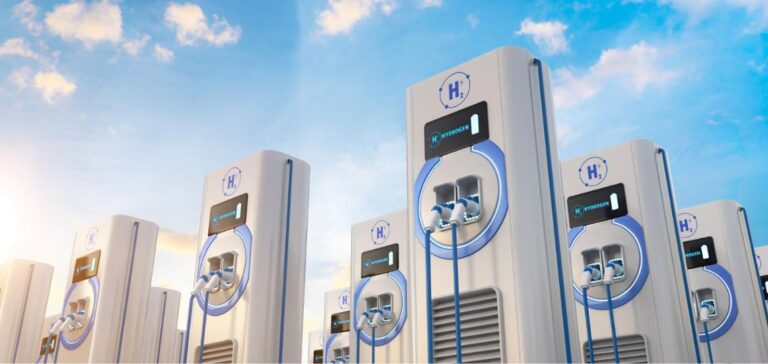In order to encourage the development of the hydrogen industry and promote the country’s energy and ecological transition, Agnès PANNIER-RUNACHER, Minister of Energy Transition, Roland LESCURE, Minister Delegate for Industry, and Clément BEAUNE, Minister Delegate for Transport, have jointly announced the re-launch of the “Hydrogen Territorial Ecosystems” call for projects. This initiative, carried out in collaboration with Bruno BONNELL, Secretary General for Investment in charge of France 2030, is an essential step in the implementation of the national strategy for the development of low-carbon hydrogen adopted in 2020.
France 2030: 175 million euros to support hydrogen ecosystems
The French government has placed the transition to a hydrogen economy at the heart of its priorities, mobilizing a 9 billion euro budget through France 2030 to support the deployment of this technology. This new phase of the “Hydrogen Territorial Ecosystems” call for projects is therefore part of this dynamic, with an additional €175 million from France 2030 and the Ministry of Energy Transition.
The objective of this call for projects is to financially support the production, distribution and use of hydrogen, as well as the deployment of hydrogen vehicles. Since 2018, no less than 35 hydrogen ecosystems have been supported in France, receiving more than €320 million in public support. This new phase aims to go even further by developing ecosystems that bring together, on the scale of a given territory, all the links in the hydrogen chain, from production to use, whether for industrial or mobility applications.
This combined approach allows for the emergence of shared infrastructures, optimizing hydrogen-related costs and synchronizing investments throughout the chain. The call for projects also encourages the formation of consortia of partners, such as investors, infrastructure operators and hydrogen users.
The submitted projects will be evaluated, competed and selected within three distinct categories: the first category concerns new ecosystems with a predominantly industrial use, the second category targets new ecosystems that primarily support mobility, and the third category focuses on the extension of existing ecosystems through new mobility uses.
Energy transition: The French government launches a call for projects in the field of hydrogen
Applications are open until September 15, 2023, providing an opportunity for industry, research and public sector actors to propose innovative hydrogen projects. Details of the specifications of the scheme are available via a link provided by the government.
Agnès Pannier-Runacher, Minister of Energy Transition, underscores the government’s commitment to the development of the hydrogen industry, highlighting its key role in decarbonizing the economy, particularly for sectors that lack viable alternatives. It also emphasizes the importance of developing a complete French industry in the hydrogen value chain, while promoting the realization of concrete solutions on the national territory. It calls for the mobilization of the sector’s players to update the hydrogen strategy entrusted by the President of the Republic last November.
For Roland Lescure, Minister Delegate in charge of Industry, hydrogen represents one of the major technological breakthroughs that will enable the French economy to be completely decarbonized by 2050. Thanks to the State’s continued support for research and development in this field since 2017, the French hydrogen industry is now positioned among the world leaders. The extension of public support for territorial hydrogen ecosystems will provide new outlets for this emerging economy, promoting the emergence of national champions in the production and uses of hydrogen.
Clément Beaune, Minister Delegate in charge of Transport, highlights the State’s commitment since 2018 to support the development of decarbonized hydrogen, which is essential for decarbonizing modes of transport and meeting greenhouse gas emission reduction targets. With this additional 175 million euro envelope, he is pleased with the re-launch of the call for projects, which will allow the development of hydrogen filling stations and facilitate the acquisition of hydrogen vehicles.
In short, the re-launch of the “Hydrogen Territorial Ecosystems” call for projects is a testament to the French government’s commitment to accelerate the energy transition by focusing on low-carbon hydrogen. This initiative aims to financially support projects combining the production, distribution and use of hydrogen, as well as the deployment of hydrogen vehicles. It offers an opportunity for players from different sectors to present innovative projects and contribute to the construction of a solid and competitive hydrogen industry in France.






















